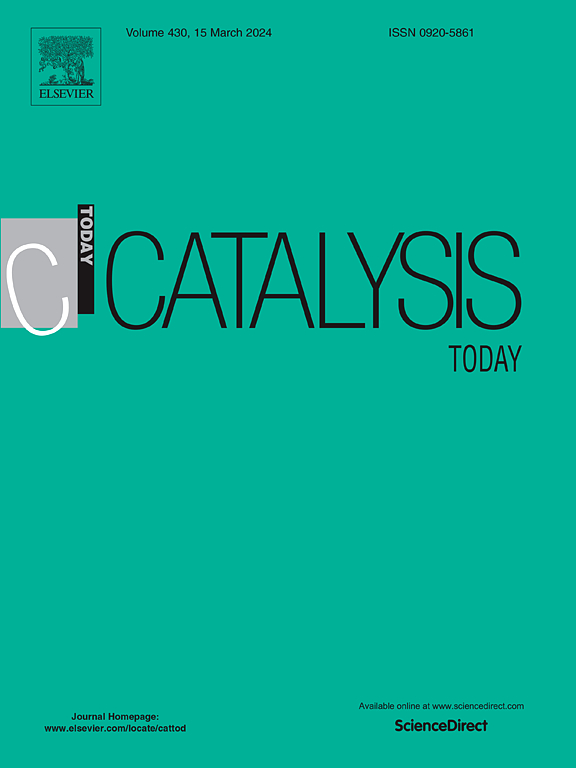Comparative assessment of Mo/Ti and Mo/C catalysts for phenol hydrodeoxygenation: Influence of support and hydrogen treatment
IF 5.2
2区 化学
Q1 CHEMISTRY, APPLIED
引用次数: 0
Abstract
Even if catalytic hydrodeoxygenation (HDO) is a promising approach for converting bio-oil into high-value products, this reaction process still faces challenges related to the inherent high hydrogen consumption needed to perform it. Therefore, the hydrodeoxygenation (HDO) of phenol was herein studied in the gas phase using molybdenum catalysts supported on titania (Mo/Ti) and activated carbon (Mo/C) at atmospheric pressure in order to evaluate the consequences of hydrogen treatment on the catalytic properties of these Mo-based HDO catalysts. Samples were characterized by ICP-OES, XRD, XPS, Raman, TPR, H2O-TPD, and oxygen chemisorption, and the physicochemical properties were compared with their catalytic performances. Under the studied conditions, the support type and the hydrogen treatment cause changes in active species (MoO2 and MoO3), promoting different catalyst behaviors. However, all the catalysts studied were 100 % selective to benzene, indicating that the molybdenum active phase did not influence the selectivity of the reaction.
苯酚加氢脱氧Mo/Ti和Mo/C催化剂的比较评价:载体和氢处理的影响
尽管催化加氢脱氧(HDO)是将生物油转化为高价值产品的一种很有前途的方法,但该反应过程仍然面临着与执行该反应所需的固有高氢气消耗相关的挑战。因此,本研究在常压下,利用二氧化钛(Mo/Ti)和活性炭(Mo/C)负载的钼催化剂在气相中对苯酚加氢脱氧(HDO)进行了研究,以评价氢处理对这些钼基HDO催化剂催化性能的影响。采用ICP-OES、XRD、XPS、Raman、TPR、H2O-TPD、氧化学吸附等方法对样品进行表征,并将其理化性质与催化性能进行比较。在所研究的条件下,载体类型和氢气处理导致活性物质(MoO2和MoO3)的变化,促进了不同的催化剂行为。然而,所研究的所有催化剂对苯的选择性均为100 %,表明钼活性相不影响反应的选择性。
本文章由计算机程序翻译,如有差异,请以英文原文为准。
求助全文
约1分钟内获得全文
求助全文
来源期刊

Catalysis Today
化学-工程:化工
CiteScore
11.50
自引率
3.80%
发文量
573
审稿时长
2.9 months
期刊介绍:
Catalysis Today focuses on the rapid publication of original invited papers devoted to currently important topics in catalysis and related subjects. The journal only publishes special issues (Proposing a Catalysis Today Special Issue), each of which is supervised by Guest Editors who recruit individual papers and oversee the peer review process. Catalysis Today offers researchers in the field of catalysis in-depth overviews of topical issues.
Both fundamental and applied aspects of catalysis are covered. Subjects such as catalysis of immobilized organometallic and biocatalytic systems are welcome. Subjects related to catalysis such as experimental techniques, adsorption, process technology, synthesis, in situ characterization, computational, theoretical modeling, imaging and others are included if there is a clear relationship to catalysis.
 求助内容:
求助内容: 应助结果提醒方式:
应助结果提醒方式:


